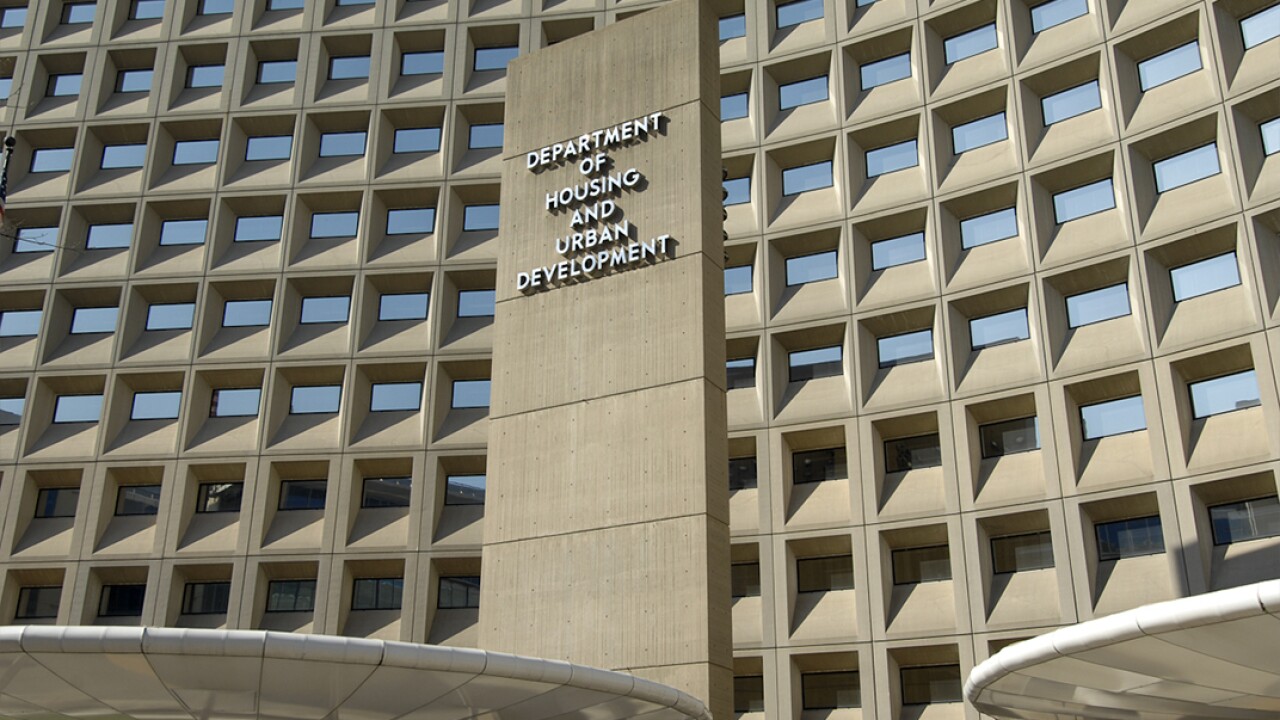WASHINGTON — Although the Dodd-Frank Act made some positive changes, including requiring stress tests and giving government the power to unwind large banking companies, the weight of its regulations is killing small banks, Brian Moynihan, the CEO of Bank of America, said Tuesday.
Moynihan struck a cautious tone when discussing the 2010 financial reform law in a public interview hosted by The Washington Post, arguing that it helped improve the system while saying the compliance burden is too much for many institutions.
“We believe the regulatory relief at the smaller institutions, financial institutions has to be real and fast, because they just don’t have the scale to afford the 3,000 people we have in our compliance department, 5,000 people in our” risk department, Moynihan said.

Moynihan said that many individual provisions of the law made sense, but "the problem is how much work it takes to do some of them — the connectivity of all these things.”
He cited a 500-page attestation that B of A had to file in order to be in compliance with the Volcker Rule, which is designed to make sure banks aren’t using customer deposits for proprietary trading.
“Is that really needed for a portion of a portion of a portion of a portion of our business?” asked Moynihan, pointing to how regulations have added up.
He also said that regulatory requirements in mortgage lending and small-business lending are preventing capital from flowing to those parts of the economy.
But Moynihan praised other rules that ensure his industry counterparts are running a sound company and allow the government the ability to seize and unwind a failing megabank.
“If any bank fails, you can visualize we are writing a check for about 10-15%” of the losses, Moynihan said, referring to a Federal Deposit Insurance Corp. assessment the bank pays into a fund that is used to clean up failures. “Ultimately, you need the government to stabilize the world like it did in '08, and then you need the industry actually to pay it, to clean it up.”
Moynihan specifically praised the law for requiring stress tests and boosting overall capital levels.
“That is the good part of Dodd-Frank, the stress testing regime,” said Moynihan, who compared hypothetical scenarios the bank must use to what would happen if it suddenly hit a wall at 100 miles an hour.
Moynihan was also asked whether his company is interested in raising the deposit cap, which prevents a bank from making acquisitions if it would result in more than 10% of U.S. insured deposits being at a single banking company. B of A is currently the only institution bound by that cap.
But Moynihan said Bank of America is more interested in opening new branches in the top 30 to 50 U.S. markets where it has no presence than in buying other banks.
Buying another bank "would slow us down," he said, noting the difficulties in merging systems and other obstacles. "Our strategy would not be to do acquisitions."
During the discussion. Moynihan also said the cost of bolstering the company’s cybersecurity defenses has tripled over the last eight to 10 years, but the spending supports B of A’s core mission to provide a wide variety of services safely. He said that as attacks continue, he hopes that better information sharing will help improve efficiencies.
“We have been driving to get better and better coordination among us and … inside the government to allow us to operate better and give back to the government. It is a lot of money on this and we are trying to get more efficient,” he said.
Like most CEOs who are navigating a hyperpartisan political era, Moynihan said he tries to avoid weighing in on pressing political topics. But he drew a line at a North Carolina law, widely known as the Bathroom Bill, that required people to use the bathroom associated with the gender on their birth certificate. Because B of A is a large employer in North Carolina (it is based in Charlotte), he felt compelled to lobby against the law, he said.
“Substantively the issue that was about one thing quickly became about LGBT rights overall, and that is when it really became ticklish and we had to step in because our values say how we operate the company,” Moynihan said. “The way I assessed whether we get involved is really focused on what is important to our teammates, our clients and our shareholders, and then we decide.”





